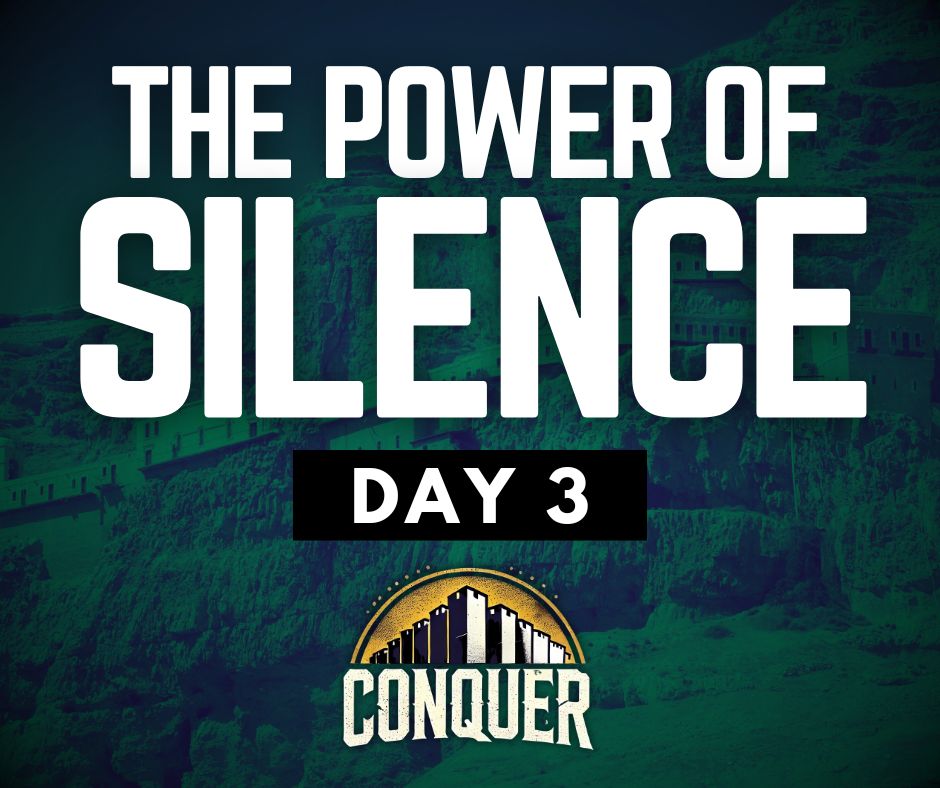Be still, and know that I am God; I will be exalted among the nations, I will be exalted in the earth.
Psalm 46:10 (NIV)
Fear has a way of amplifying the noise in our minds. When we’re afraid, our thoughts race, our hearts pound, and our bodies tense up. It’s as if an internal alarm is blaring, drowning out everything else. In these moments, stillness seems impossible. Yet, the story of Jericho in Joshua 6 offers us a powerful lesson in overcoming fear through stillness and trust in God.
Imagine the scene at Jericho. The Israelites stood before an impenetrable fortress, their first major obstacle in the Promised Land. Archaeological evidence suggests the walls of Jericho may have been up to 25 feet high and 20 feet thick. To the human eye, this city was unconquerable. Fear must have gripped many hearts in the Israelite camp.
In the face of this daunting challenge, God’s command was unexpected: “Do not give a war cry, do not raise your voices, do not say a word until the day I tell you to shout. Then shout!” (Joshua 6:10). God was calling His people to be still, to quiet their fears, and to trust in His plan.
“Silence is the great peacemaker.” – Henry Wadsworth Longfellow (American poet and educator, known for his Christian themes)
This quote beautifully captures the power of stillness in calming our inner turmoil. When we cultivate stillness, we create space for peace to enter our hearts and minds. The Israelites’ silent march around Jericho wasn’t just a military strategy; it was a spiritual discipline that helped them overcome their fears and focus on God’s presence and power.
Stillness in the face of fear is a form of active trust in God. It’s not about denying our fears or pretending they don’t exist. Rather, it’s about choosing to focus on God’s character and promises instead of our anxieties. When we’re still, we remind ourselves that God is in control, even when circumstances seem overwhelming.
Cultivating inner stillness is a practice that can help us face our modern-day Jerichos. Whether we’re dealing with health concerns, financial pressures, relationship challenges, or any other fear-inducing situation, stillness can be our pathway to peace. We can practice stillness through deep, intentional breathing to calm our physical response to fear, meditating on Scripture to focus on God’s promises, engaging in silent prayer as we sit in God’s presence, taking nature walks to disconnect from anxieties and reconnect with God’s peace, and journaling to process our fears and create mental space for stillness.
The Israelites’ stillness at Jericho wasn’t passive; it was filled with expectation. Similarly, our stillness in the face of fear should be an active posture of trust and anticipation of God’s work in our lives.
Godseekers, when fear threatens to overwhelm you, remember the power of stillness. Like the Israelites facing the walls of Jericho, your quiet trust in God can be the key to overcoming seemingly insurmountable obstacles.
Prayer
Heavenly Father, in a world full of noise and fear, teach us the power of stillness. When we face our own Jerichos, help us to quiet our anxious thoughts and trust in Your unfailing love and power. May we find in You the peace that surpasses all understanding, guarding our hearts and minds in Christ Jesus. Give us the courage to be still, knowing that You are God and You are in control. In Jesus’ name, Amen.
Personal Reflection
- What are the “walls of Jericho” in your life right now – the fears or anxieties that seem insurmountable?
- How might practicing stillness change your perspective on these challenges?
Step of Faith
Today, when you feel fear or anxiety rising, take a moment to practice stillness. Find a quiet place, take three deep breaths, and repeat Psalm 46:10 to yourself: “Be still, and know that I am God.” Do this for at least five minutes, allowing God’s peace to fill you. Notice how this practice affects your mental and emotional state.







